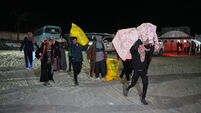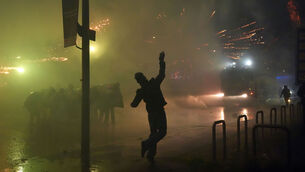Kuwaiti media cheers end of Saddam rule
Kuwaiti television has trumpeted the joy of Iraqis after the fall of Baghdad to US troops, with a presenter saying it is a “slap in the face” to those Arabs who sided with Saddam Hussein.
Other Arab media were more subdued about the US military success in Iraq.














